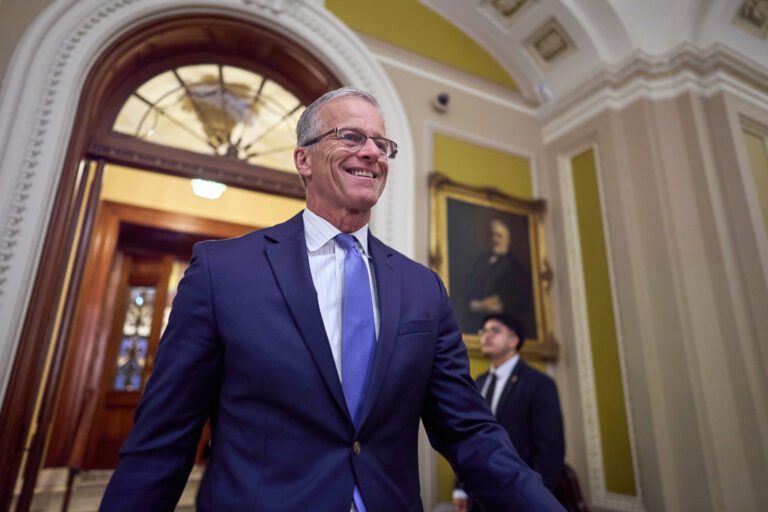Key Conservative Provisions Axed from One Big Beautiful Bill Act
The U.S. Senate Parliamentarian, Elizabeth MacDonough, has taken significant action to trim essential conservative elements from the One Big Beautiful Bill Act. According to Senate rules, all components of the bill must primarily address revenue and spending to bypass the 60-vote requirement for passage.
Understanding the Byrd Rule
The Byrd Rule governs what can or cannot be included in a reconciliation package. This process allows legislation to advance with only 51 votes instead of the typical 60 required for other bills. Senator John Thune is navigating a complex political landscape, attempting to satisfy both conservative and moderate members of his party amid these contentious discussions.
The Byrd Bath Process
As the discussions unfolded, known as the "Byrd Bath" process, the Republican majority fought to defend various conservative priorities embedded within the legislation. MacDonough has already removed several provisions, citing that they address policy rather than fiscal concerns.
Key Exclusions
- Judicial Restraints: A section aimed at limiting federal judges’ authority to impose injunctions and temporary restraining orders was nixed. This change is a setback for President Trump and his allies, who have long sought to rein in judicial powers.
- Sanctuary Policies: A provision proposed by Attorney General Bondi, which aimed to restrict federal funding for “sanctuary” states that do not cooperate with immigration enforcement, was also struck down due to non-compliance with Senate rules.
- Reorganization Authority: A controversial provision granting the president expansive powers to reorganize executive branch agencies was ruled to be subject to the 60-vote threshold if not removed.
Additional Provisions at Risk
Moreover, a section from the Senate Agriculture Committee concerning the Supplemental Nutrition Assistance Program (SNAP), which proposed cutting federal funding for states with high rates of erroneous payments, faced a similar fate. This particular provision must be eliminated or subjected to a more stringent voting process.
Provisions Allowed to Stand
Despite the rigorous cuts, some elements remain intact. Notably, a ten-year moratorium on states regulating artificial intelligence has passed muster but faces criticism from several conservative lawmakers, including Senators Josh Hawley and Marsha Blackburn, along with Congresswoman Marjorie Taylor Greene.
Summary of Key Points
- Byrd Rule critical in determining what can be included in reconciliation bills.
- Key provisions around judicial constraints and immigration policy were removed.
- A controversial AI regulation moratorium survives scrutiny but faces conservative backlash.
In conclusion, as the legislative process continues, the balance between satisfying core conservative objectives and adhering to Senate regulations remains a daunting task. As the One Big Beautiful Bill Act evolves, stakeholders will be closely monitoring the dynamics unfolding in the Senate.
Related Resources for Further Reading:
This comprehensive view provides clarity amidst changing legislative landscapes and underscores the importance of understanding the intricacies of Senate rules and processes.


